Outline vs Notion
Learn more about your options and pick the best tool for your team.
Unsure whether to choose Outline or Notion for your team? You've come to the right place.
If you're evaluating wiki and knowledge sharing software and ended up with Notion and Outline on your shortlist, you're not alone. These two tools share many similarities, making the choice between them far from clear-cut.
So which one is better, and what are the key differences? In this article, we will take a closer look at both Outline and Notion and examine their strengths and weaknesses.
Outline and Notion compared
Notion was launched in 2016 and took the market by storm, accumulating millions of users in just a few short years. Outline, on the other hand, is a relatively new solution that is still not widely known.
Let's dive deeper into what Outline and Notion have to offer and also have a look at other alternatives you may want to consider.
Outline
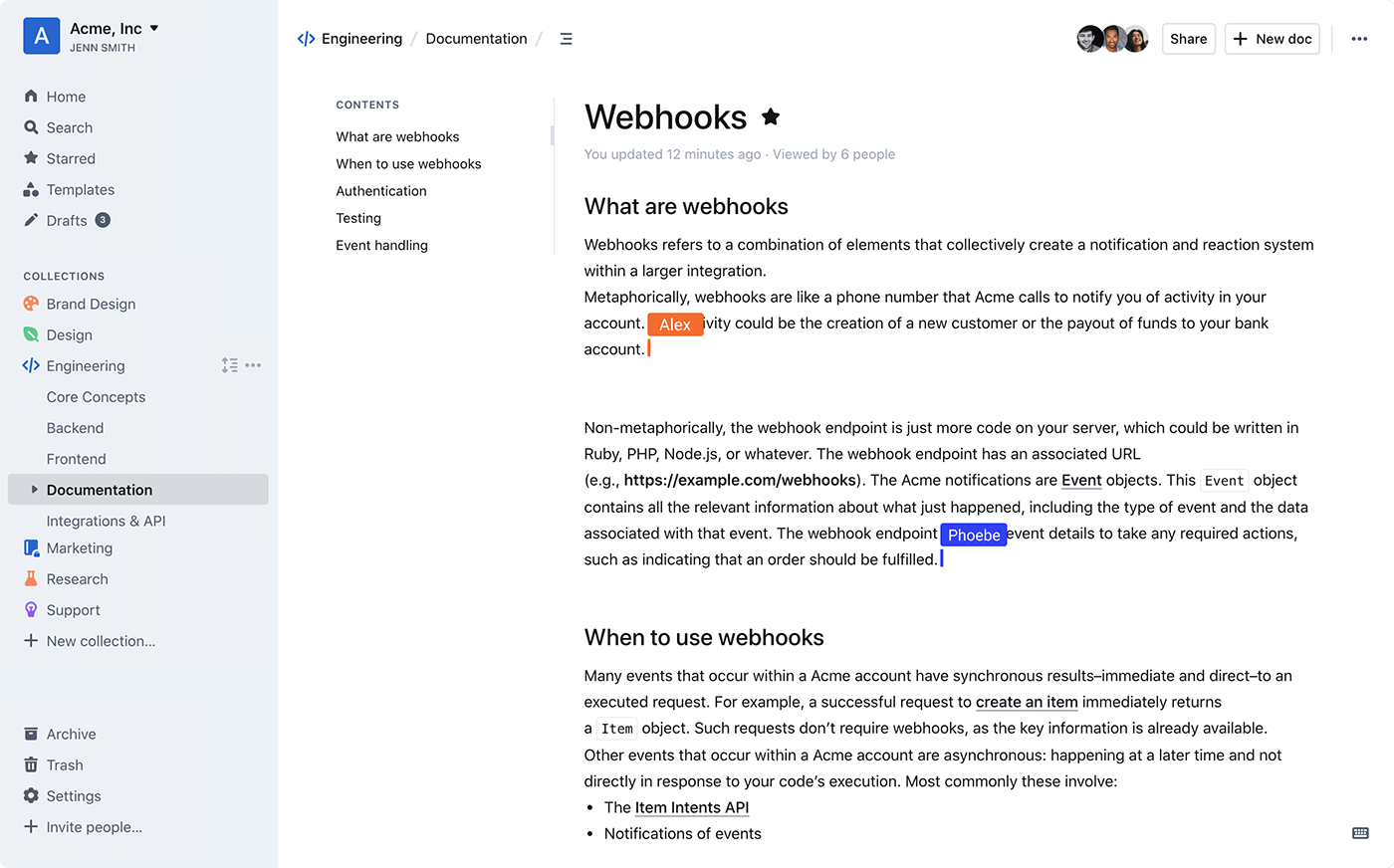
Pricing: Starting from $10 for 10 users
Rating on Capterra: 5/5
Unlike Notion, which positions itself as an "all-in-one" workspace, Outline is designed to be primarily used as a knowledge base and documentation platform. It's fully optimized for this use case and doesn't try to do too many things at once. This allows Outline to offer a more straightforward and user-friendly interface and makes it easier for new users to get started with the tool.
Another notable difference from Notion is that Outline is an open-source solution that allows you to host your docs on your own infrastructure. This is a great cost-effective option for those who want to have complete control over the storage and access of their data. For users who are not comfortable with self-hosting, there is also a cloud-based version of Outline available.
Why you might prefer Outline over Notion:
Outline is more limited than Notion but easier to get started with.
Outline is available as a free self-hosted solution.
The cloud-based version of Outline is more affordable.
You can customize Outline to match your brand, including using your own domain and brand colors.
What users say about Outline:
"When we deployed Outline, we were able to improve our knowledge sharing practices and it saved us a lot of time, boosting our team productivity. Outline is open source, so we were able to self-host it in a tiny cloud server. It has all the features we needed and it has the best-looking interface among all open-source alternatives."
Looking for more tools similar to Outline? Check out this list of Outline alternatives.
Notion
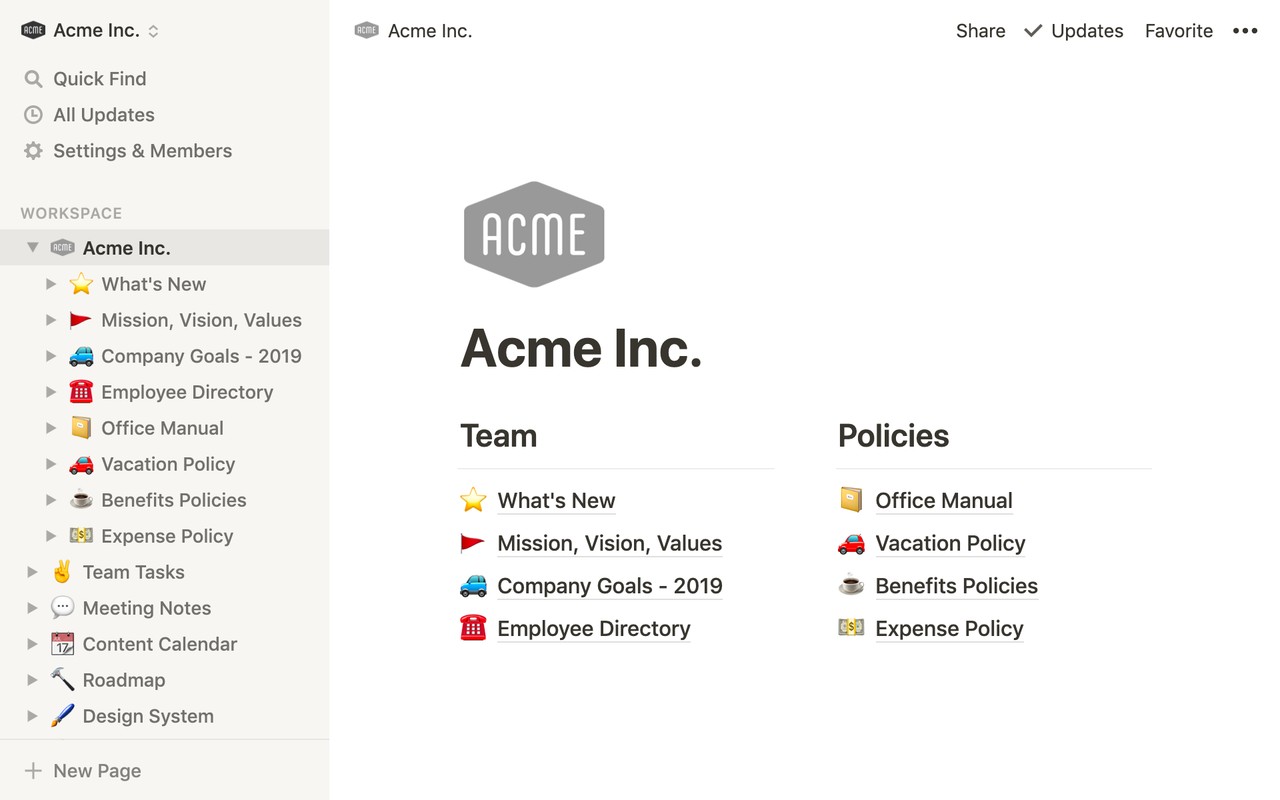
Pricing: Free, advanced features starting from $10/user/month
Rating on Capterra: 4.7/5
Like Outline, Notion can be used as an internal company wiki or documentation tool. But it's a multi-purpose platform that is capable of a lot more than that. Notion describes itself as an "all-in-one workspace" and can potentially replace many other productivity tools in your workflow. You can use it as a knowledge base, a document collaboration tool, an issue tracker, a database, or even as a CMS for your website or blog.
Nearly everything in Notion can be customized, configured, or tweaked to fit your unique needs. It's packed with features, menus, and settings — which inevitably adds to a certain learning curve, compared to Outline.
Why you might prefer Notion over Outline:
Notion covers a much wider range of use cases than Outline, allowing you to not only create a knowledge base, but also manage projects, build databases, and more.
Notion offers AI features that allow you to automate tasks and quickly generate content.
Notion has a much larger user community that provides support and various resources, such as templates.
Notion offers more robust cross-platform support and provides native mobile apps.
What users say about Notion:
"Notion is a very handy tool that can fulfill multiple needs of a business such as documentation, knowledge base, project management, task tracking, roadmap planning & tracking, etc. It has a range of built-in templates which cater to almost every common use case."
Looking for more tools similar to Notion? Check out this list of Notion alternatives.
Other alternatives
It's worth noting that there are other options available beyond Outline and Notion. For example, if you like the idea of using a single tool to not only build your internal knowledge base but also manage projects and collaborate but find Notion too complex or clunky, consider Nuclino.
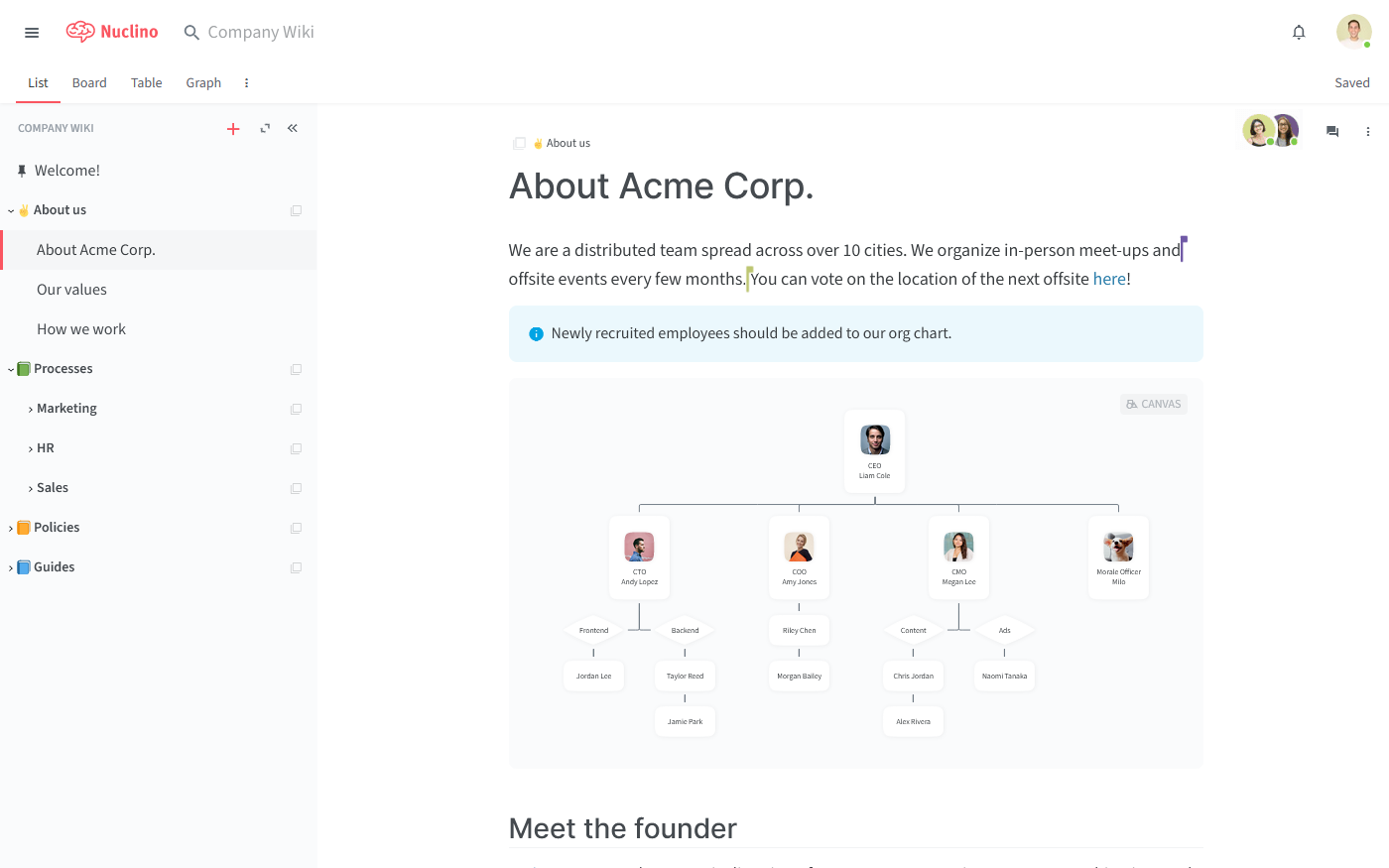
Similar to Notion, Nuclino offers a variety of flexible ways to structure information. You can create real-time collaborative documents and structure them visually using nested lists, Kanban boards, tables, and mindmap-style graphs. This versatile tool can be used for a variety of purposes, including company wikis, document collaboration, project management, sprint planning, and more.
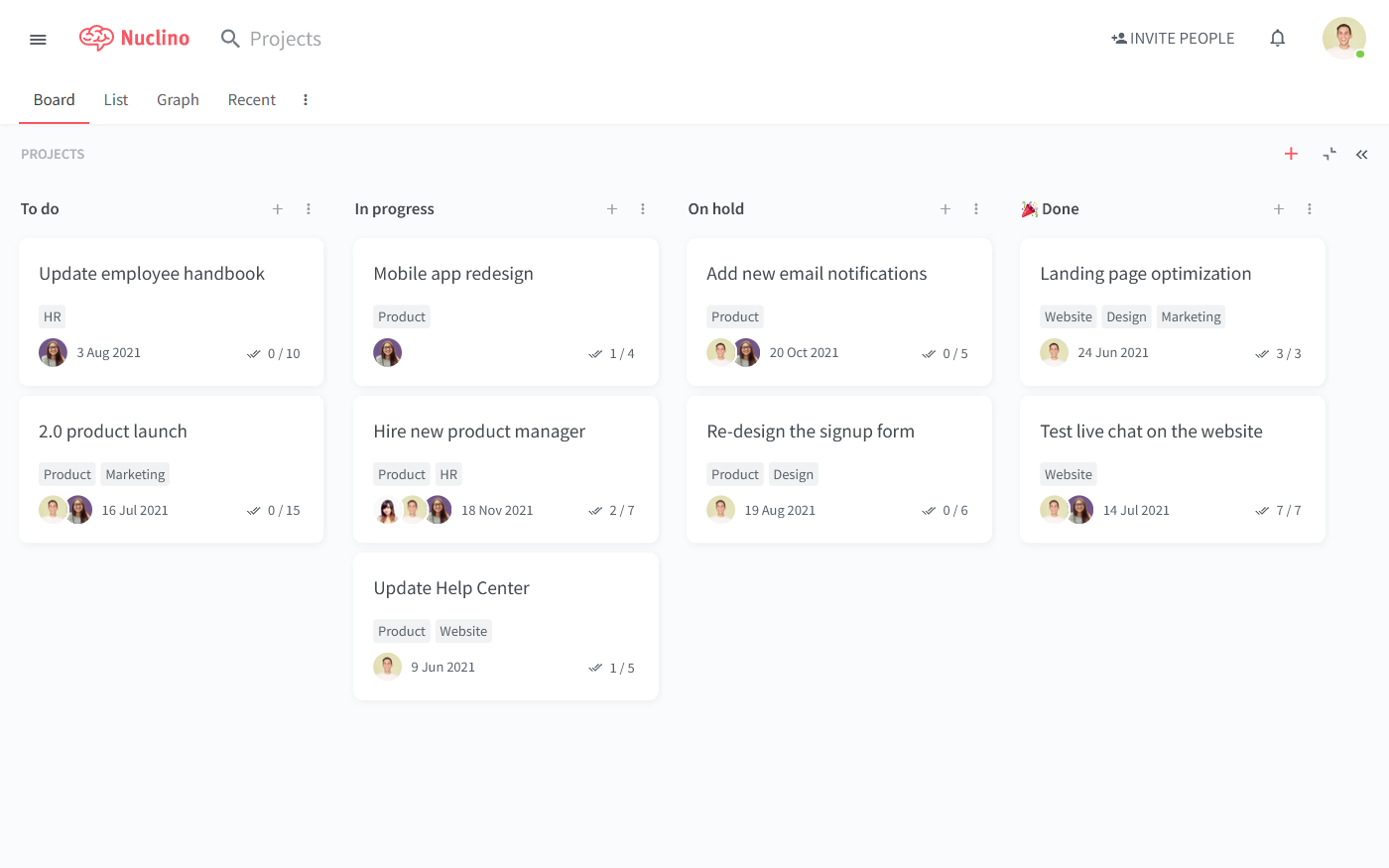
You can also turn any Nuclino workspace into a public website, like with Notion Sites. It will be accessible to anyone on the web and discoverable via search engines. It's perfect for help centers, user documentation, changelogs, and much more.
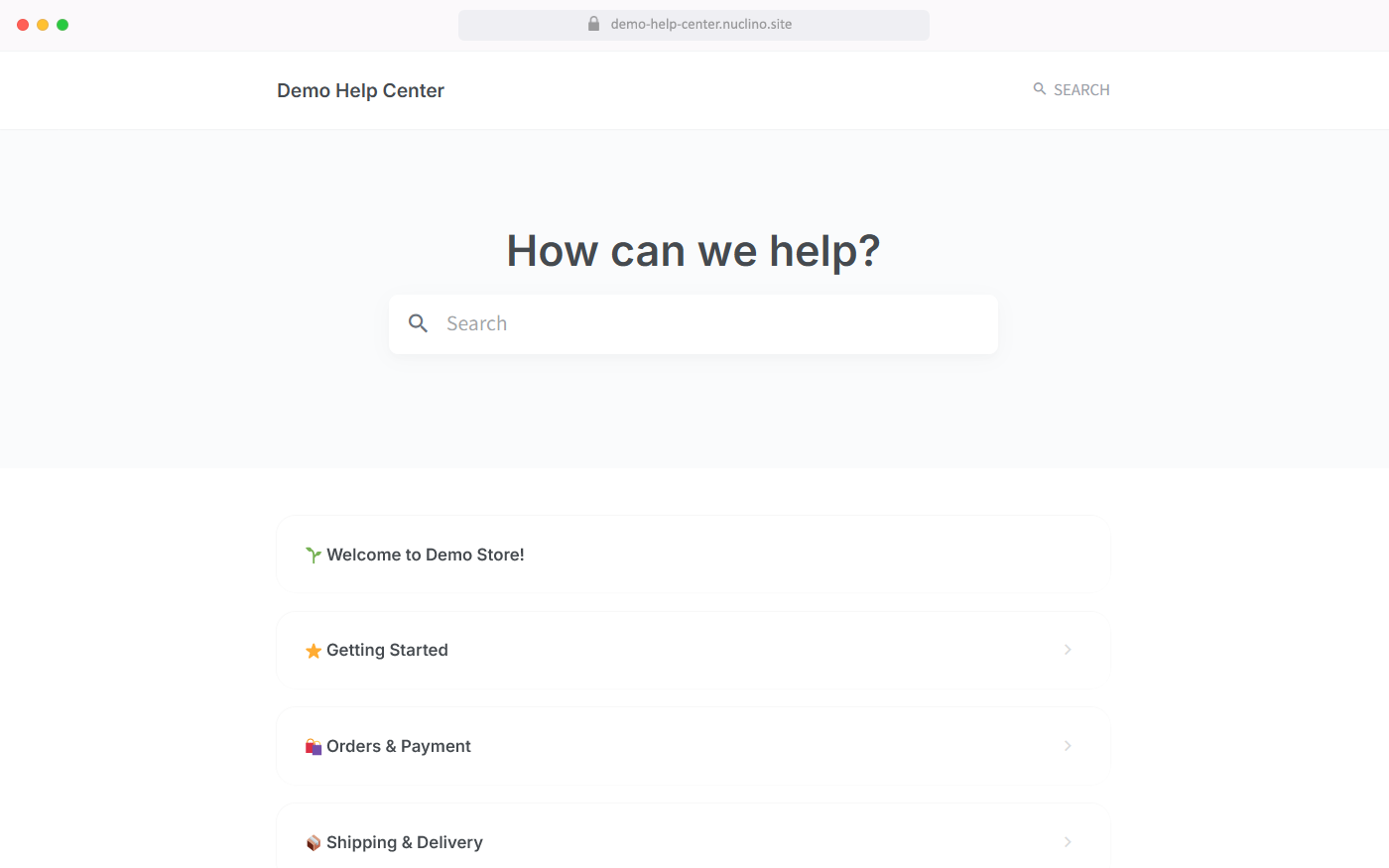
On the other hand, like Outline, Nuclino is designed to be lightweight, user-friendly, and intuitive. It prioritizes the essentials and has a clean, uncluttered interface, without unnecessary menus and rarely-used options. It's also built for efficiency, with fast searching, editing, and collaboration.
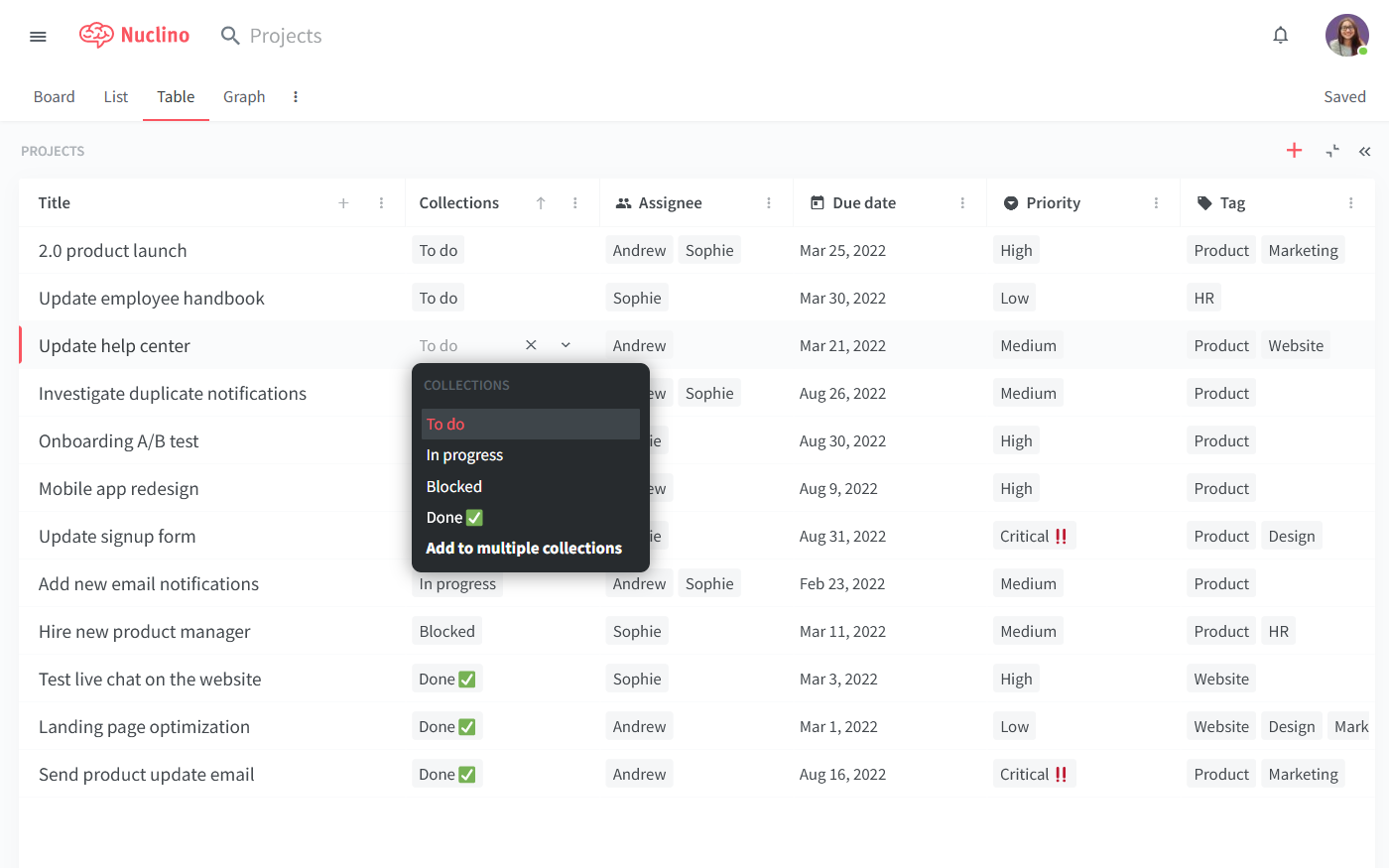
Learn more about how Nuclino compares to Notion: Nuclino vs Notion.
Outline vs Notion: So which is better?
Outline and Notion are two very different tools with their own distinct strengths and weaknesses. Depending on your unique requirements and preferences, one of them might be a much better fit than the other. You may be better off with Outline if you prefer open-source solutions and if you are looking for a simple knowledge base for your team, with no unnecessary bells and whistles. And Notion may be the better choice for you if you need something with a bit more power and flexibility and are tech-savvy enough to get the hang of it.
On the other hand, if you want the best of both worlds and value both simplicity and flexibility, consider exploring other alternatives, such as Nuclino. We hope this article has made your decision a little easier.
Ready to get started?
